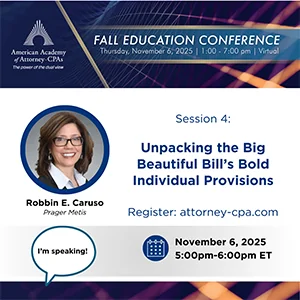Corporate Tax Compliance: What Every Business Owner Needs to Know
By Nicole M. Bononi-Wilson, Esq., MAFM Senior Manager – Tax Controversy
Let’s be honest—tax compliance isn’t exactly cocktail party conversation. But if you own a corporation, even one that’s been collecting dust since 2017, the IRS still expects you to show up to the annual filing party. And by show up, we mean file Form 1120.
Who Must File Form 1120?
According to IRC §6012(a)(2) and Treasury Regulation 26 CFR §1.6012-2(a), every domestic corporation must file a return. This includes:
· Dormant corporations (even if they’ve been in hibernation)
· LLCs electing corporate tax treatment (surprise!)
· Personal service corporations (consultants, we’re looking at you)
IRS Form 1120 instructions say: “Domestic corporations must file Form 1120 whether or not they have taxable income.” Translation: no income, no excuses.
How Many Years Must Be Filed to Get Back Into Compliance?
If your business hasn’t filed in years, don’t panic. IRS Policy Statement 5-133 offers a lifeline: “The enforcement period is not to be more than six years.” That’s right—six years is the magic number. Not ten, not twenty, and definitely not since the invention of the fax machine. However, this is an administrative guideline, not a statutory requirement.
IRS Enforcement Guidelines: What Revenue Officers Consider
The IRS doesn’t just roll dice to decide how many years of returns to request. According to IRM §4.12.1.3, Revenue Officers consider the following:
· Taxpayer’s history of compliance (or creative avoidance)
· Income from illegal sources (hopefully not your side gig as a pirate)
· Impact on voluntary compliance (they like team players)
· Potential tax revenue vs. enforcement effort (they’re efficient like that)
· Special considerations related to the taxpayer’s industry or type of tax (yes, even alpaca farms count)
Consequences of Not Filing
Ignore the IRS and they might file a Substitute-for-Return (SFR) for you under IRC §6020(b). That’s like letting someone else guess your income—and they always guess high. You could face penalties, interest, and a very unfriendly audit.
Take Action
Here is your survival guide to corporate tax compliance:
1. If a non-filer, file the last six years of returns.
2. Stay current with this year’s filing.
3. Work with a tax professional who does not flinch at IRS acronyms.
Remember, the IRS isn’t trying to ruin your day—they just want you to follow the rules. Filing Form 1120 annually is your ticket to peace of mind, fewer penalties, and maybe even a good night’s sleep.
Please feel free to reach out to your Prager Metis relationship manager if you have any questions or need assistance with your business’s filing requirements.









